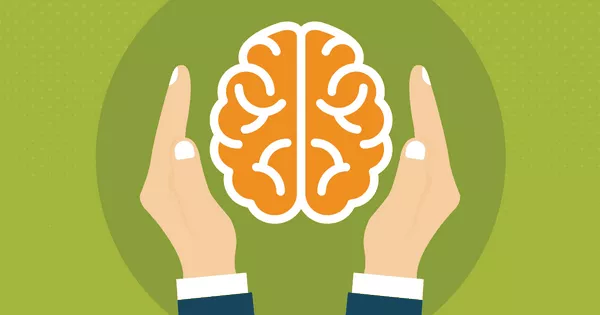Shortness of breath is a common and distressing symptom experienced by individuals with anxiety disorders. Understanding the intricate relationship between anxiety and respiratory sensations is crucial for both those affected and healthcare professionals. This article delves into the causes of shortness of breath in anxiety, shedding light on the physiological and psychological factors that contribute to this challenging symptom.
The Complex Interplay:
Anxiety disorders, characterized by excessive worry and fear, can manifest in various physical symptoms, with shortness of breath being a prevalent and often perplexing experience. The interplay between psychological stress and physiological responses plays a significant role in the onset and perpetuation of this symptom.
Causes of Shortness of Breath in Anxiety
1. Psychological Factors:
Hyperventilation: Hyperventilation, or rapid breathing, is a hallmark response to anxiety. When individuals are anxious, the body’s natural “fight or flight” response is activated, leading to increased breathing to supply more oxygen to the muscles. However, this heightened respiratory rate can disrupt the balance of carbon dioxide in the body, causing symptoms like dizziness and, paradoxically, shortness of breath.
Catastrophic Thinking: Anxiety often involves catastrophic thinking, where individuals anticipate the worst possible outcomes. This heightened fear response can trigger physical reactions, including shortness of breath, as the body prepares for a perceived threat.
Muscle Tension: Anxiety can lead to muscle tension, particularly in the chest and diaphragm. This tension may contribute to a sensation of tightness or difficulty breathing, even in the absence of physiological respiratory issues.
2. Physiological Factors:
Increased Heart Rate: Anxiety triggers the release of stress hormones, such as adrenaline, which can accelerate the heart rate. The combination of a rapid heartbeat and increased respiratory rate may create the perception of shortness of breath.
Changes in Breathing Pattern: Anxious individuals often adopt shallow, rapid breathing patterns, known as chest breathing, rather than the more efficient diaphragmatic breathing. This altered breathing pattern can contribute to feelings of breathlessness.
Activation of the Sympathetic Nervous System: The sympathetic nervous system, responsible for the “fight or flight” response, is activated during anxiety. This physiological response can lead to changes in respiratory function, including an increased respiratory rate and a feeling of breathlessness.
Sensitivity to Carbon Dioxide Levels: Individuals with anxiety may be more sensitive to changes in carbon dioxide levels. Even a slight increase in carbon dioxide, a natural byproduct of breathing, can trigger a sense of breathlessness in those predisposed to anxiety.
Airway Constriction: In some cases, anxiety can lead to a sensation of tightness in the chest, mimicking airway constriction. This perception may contribute to the feeling of difficulty breathing, even when there is no actual obstruction.
Understanding the Vicious Cycle:
The causes of shortness of breath in anxiety often create a self-perpetuating cycle. Psychological distress triggers physiological responses, and these physical sensations, in turn, heighten anxiety. Breaking this cycle involves addressing both the psychological and physiological components of the experience.
Management and Coping Strategies:
Diaphragmatic Breathing Exercises: Diaphragmatic or abdominal breathing can help recalibrate breathing patterns. By focusing on deep, slow breaths that engage the diaphragm, individuals can counteract shallow chest breathing and alleviate the sensation of shortness of breath.
Progressive Muscle Relaxation (PMR): PMR involves systematically tensing and then relaxing different muscle groups. This technique can help reduce overall muscle tension, including tension in the chest, providing relief from breathlessness.
Mindfulness and Meditation: Mindfulness practices, such as meditation, encourage staying present in the moment. By cultivating awareness of the breath and observing it without judgment, individuals can develop a more balanced and controlled breathing pattern.
Cognitive Behavioral Therapy (CBT): CBT, a widely used therapeutic approach for anxiety, helps individuals identify and challenge negative thought patterns. By addressing catastrophic thinking, individuals can reduce the psychological triggers that contribute to shortness of breath.
Regular Exercise: Engaging in regular physical activity can help manage anxiety and improve overall respiratory function. Exercise promotes diaphragmatic breathing, reduces muscle tension, and contributes to a sense of well-being.
Medication: In some cases, healthcare professionals may prescribe medications, such as anxiolytics or selective serotonin reuptake inhibitors (SSRIs), to manage anxiety symptoms. These medications can help regulate neurotransmitters involved in the stress response.
Consultation with Healthcare Professionals: It’s crucial for individuals experiencing persistent shortness of breath to consult with healthcare professionals. A thorough evaluation can rule out underlying medical conditions and guide appropriate treatment strategies.
Conclusion:
Shortness of breath in anxiety is a multifaceted symptom that arises from the intricate interplay of psychological and physiological factors. Recognizing the connection between anxiety and respiratory sensations is the first step in breaking the cycle of breathlessness. With a comprehensive approach that addresses both the mind and the body, individuals can develop effective strategies to manage and alleviate shortness of breath, enhancing their overall well-being and quality of life.

